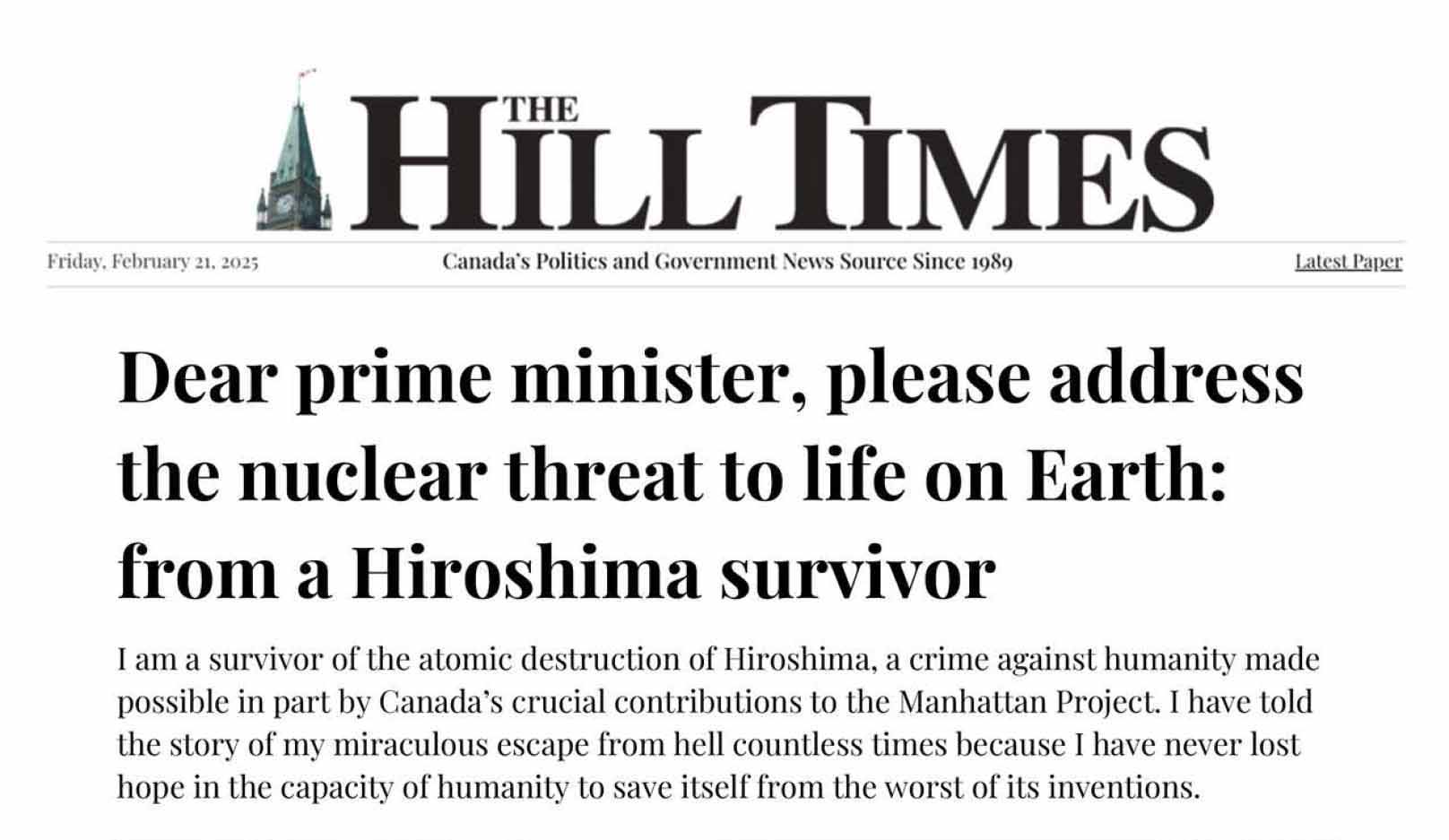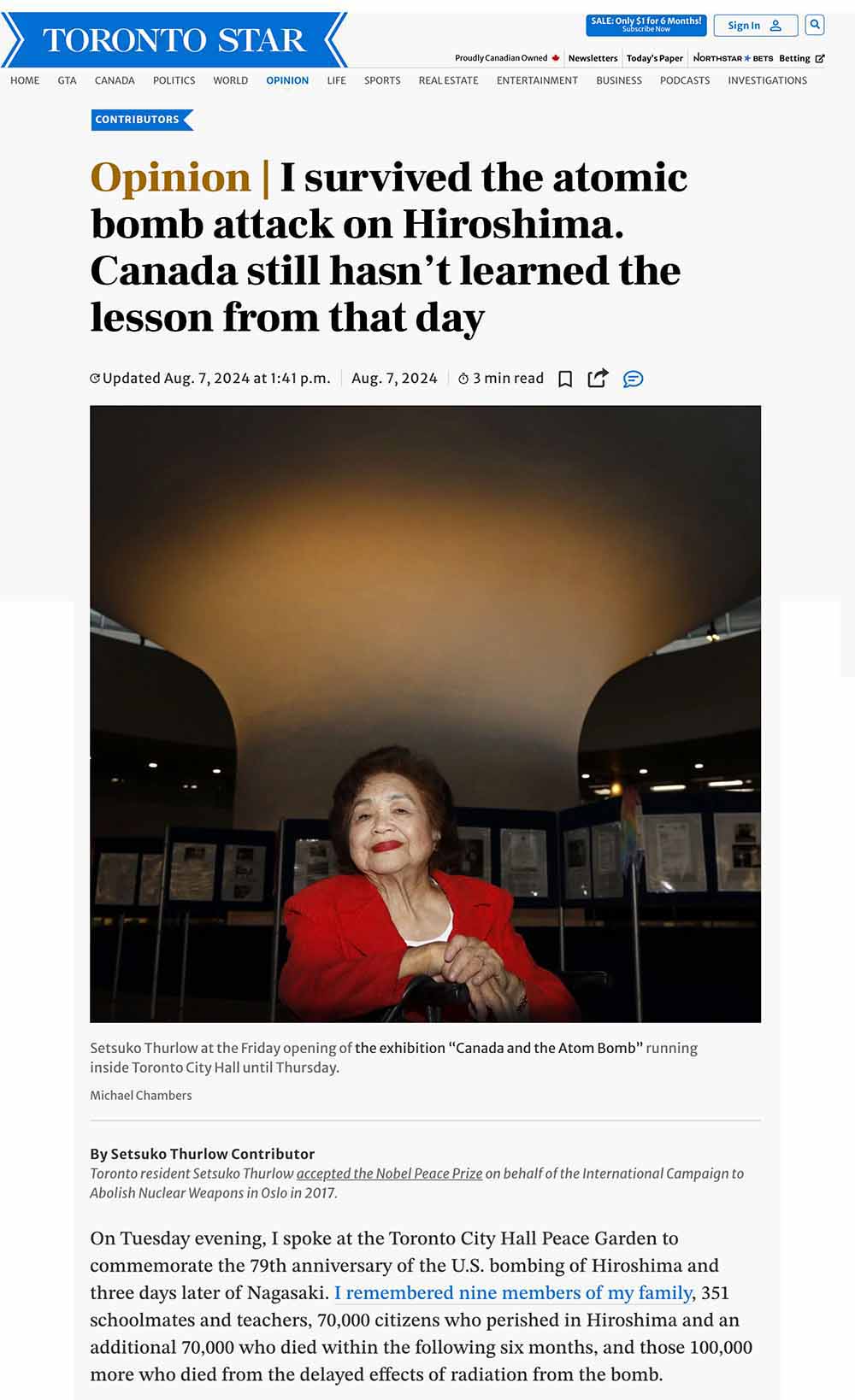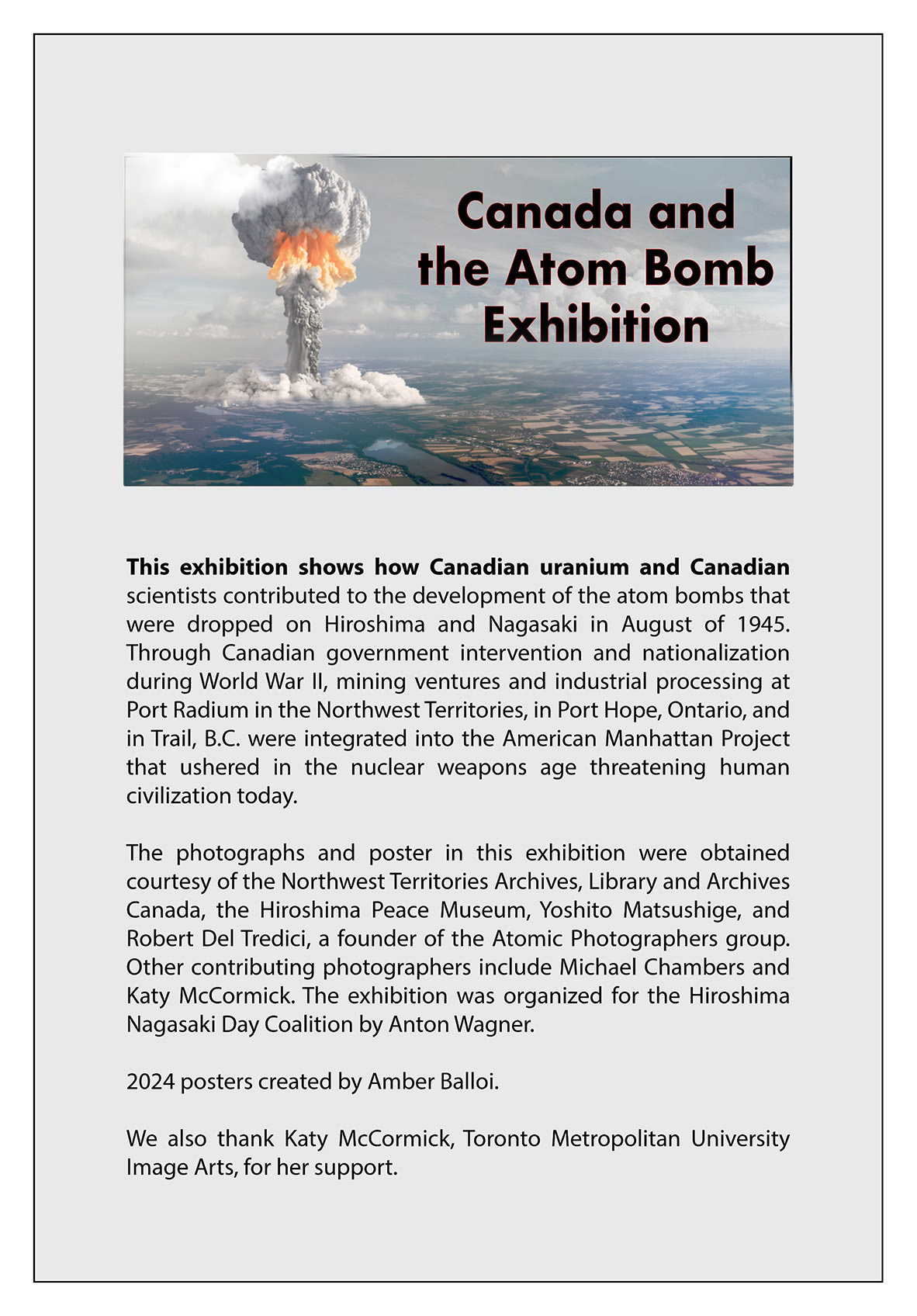

CNANW Chairperson Earl Turcotte's letter to Prime Minister Carney (May 22, 2025)




Canada and the Atom Bomb Exhibition
View online at...
https://hiroshima.imagearts.torontomu.ca/canada-and-the-atom-bomb/






Canada and the Atom Bomb Exhibition
View online at...
https://hiroshima.imagearts.torontomu.ca/canada-and-the-atom-bomb/